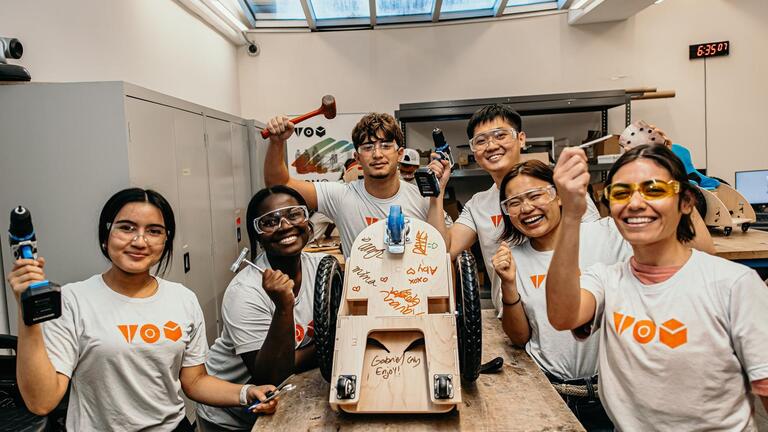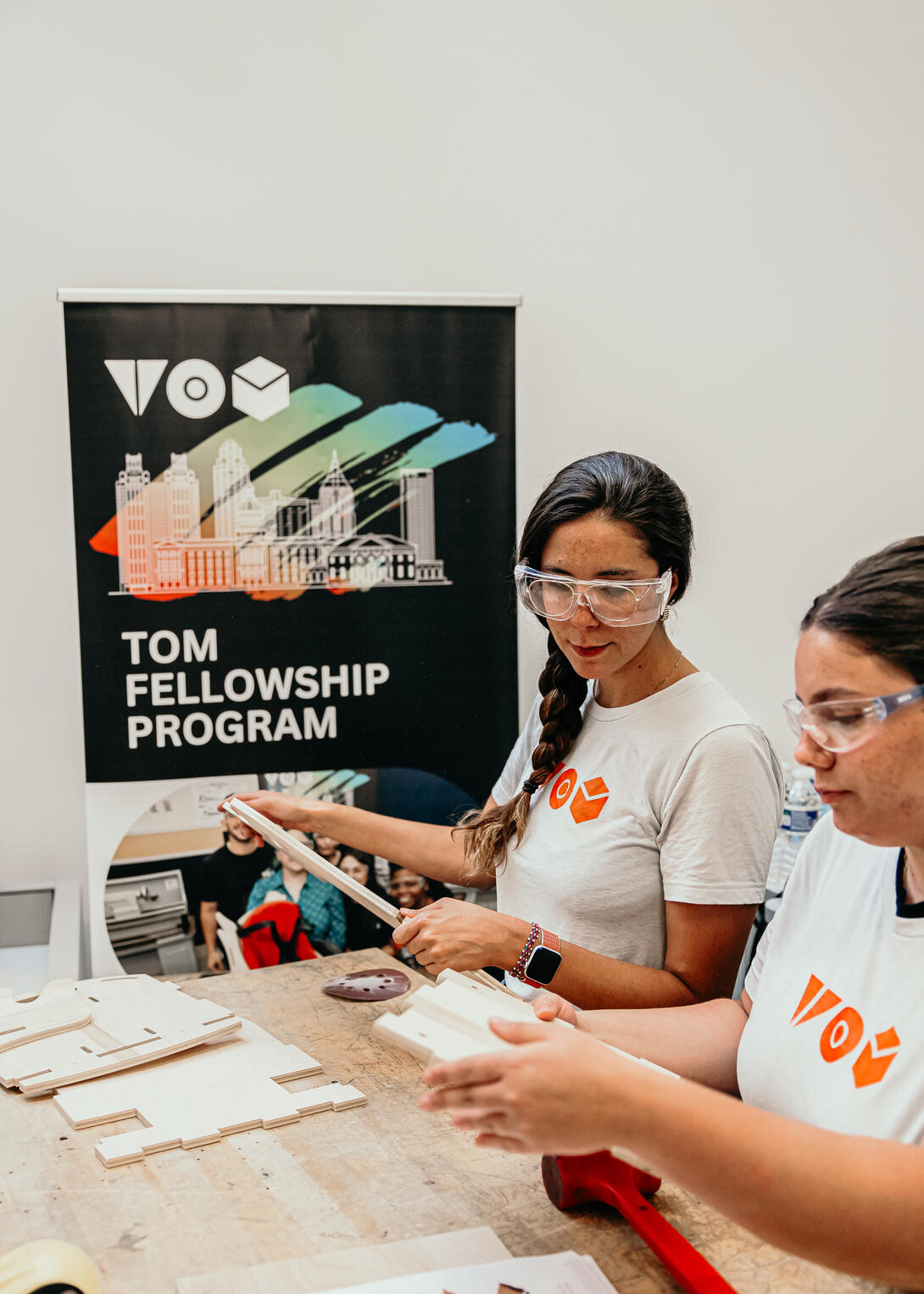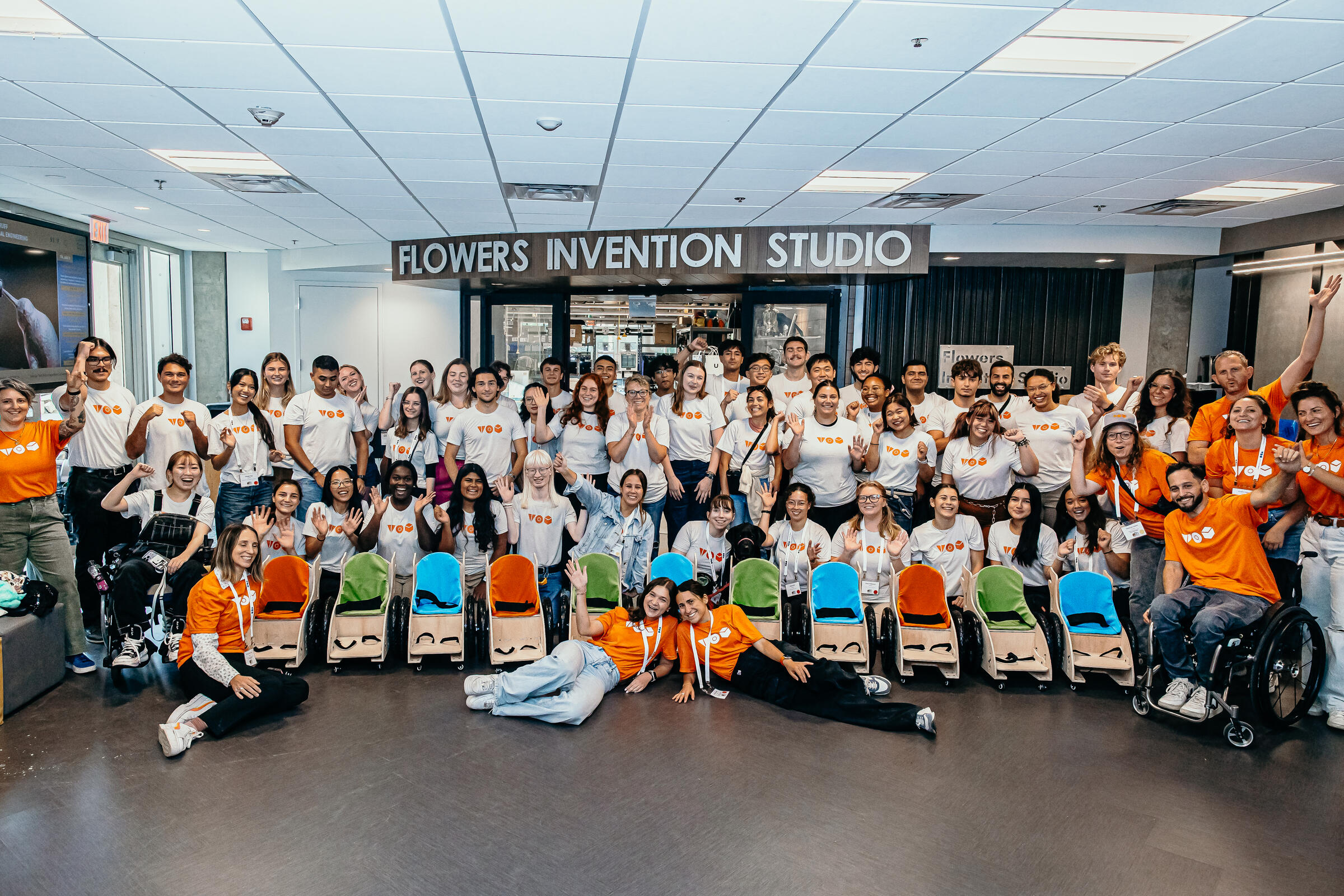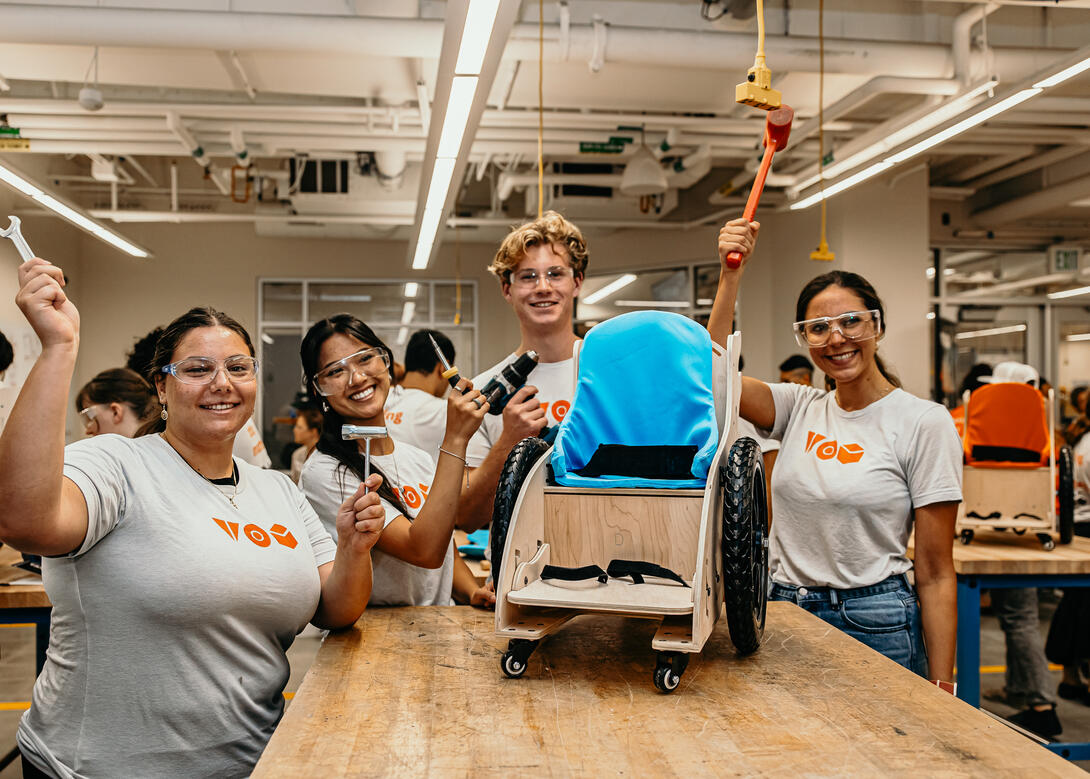Master’s Students Launch Maker Club to Build Affordable Assistive Technology


Kimberly Blacutt and Audrey Reiley, two Master’s of Design students from Carnegie Mellon University’s School of Design (MDes ’25), are bringing innovation to Pittsburgh with the formation of a new maker club aimed at creating affordable assistive technology. Their journey began with their participation in the prestigious TOM Fellowship, part of Tikkun Olam Makers (TOM), a global initiative focused on creating accessible technological solutions for people with disabilities, the elderly, and underserved communities.
This past summer, Blacutt and Riley attended a 4-day fellowship kick-off event for their TOM Fellowship in Atlanta, Georgia. Blacutt and Riley took part in immersive activities designed to give them insight into living with a disability. The pair went through a series of building and training activities including the opportunity to build toddler-mobility trainers, which were distributed to families in need.
“One memorable activity involved simulating disabilities, like blindness or using a wheelchair, to perform everyday tasks such as preparing meals or brushing teeth,” said Reiley. “It really highlighted how the world is often designed without considering the needs of people with disabilities.”
Blacutt agreed, noting how the experience reinforced the importance of human-centered design.

“Participants had to perform tasks like opening pill bottles, chopping vegetables, and pouring water while being blindfolded or using crutches,” said Blacutt. “It showed how much more difficult everyday activities can be for people with disabilities and how most products aren’t designed for them.”
Blacutt and Reiley's shared passion for hands-on making stems from their coursework at the School of Design. In a Physical Computing class, Reiley and her team developed an assistive design solution for a local Pittsburgh client with a traumatic brain injury.
“Working on that project was deeply rewarding, and when our professor, Robert Zacharias, approached me about the TOM Fellowship, I knew it was something I wanted to fully dedicate myself to,” said Reiley.
Blacutt recalled their shared love for making in their Interaction Design Studio course, where they explored physical computing and other maker tools through CMU’s IDeATe program. “We’re both interested in exploring physical computing, laser cutting, and other maker tools. The TOM Fellowship gives us the chance to do what we enjoy with purpose—designing for specific people in need,” said Blacutt.

Blacutt and Reiley emphasized the responsibility designers have in creating inclusive solutions while addressing assistive technology challenges.
“As we shape the world through design, the world shapes us,” explained Reiley. “Designers need to go beyond normalcy and embrace interdependence, creating spaces and tools that support diverse bodies and abilities.”
Blacutt added that assistive technology doesn’t always have to be high-tech—thoughtful, specific design can be just as impactful. “Even something simple, like a 3D-printed custom grip for a handheld tool, can make a huge difference. Our job as TOM Fellows is to be the link between local communities and students who have the creativity and access to maker spaces to create these solutions.”
As part of their fellowship Blacutt and Reiley are in the process of establishing a new maker club at CMU, which will focus on creating assistive technology for the local community. They’ve already mapped out several events, starting with workshops and make-a-thons.

“We’ll host workshops to teach students practical skills like soldering, sewing, and adapting switches,” said Blacutt. “Our first make-a-thon, the Adaptive Toy Drive, will focus on rewiring toys to make them more accessible for children with motor skill challenges.” This event will take place on November 2nd at CMU, with a follow-up at Duquesne on November 16th.
In the Spring, the club will host a second make-a-thon dedicated to building toddler mobility trainers.
“These devices allow toddlers with physical disabilities to move independently and confidently indoors,” said Reiley. “We hope these events will inspire younger students to join the club and continue this work after we graduate.”
The TOM Fellowship has not only given Blacutt and Reiley the opportunity to make a difference but also laid the groundwork for a new community of makers at CMU who are passionate about improving the quality of life for people with disabilities.
Students interested in joining the club or learning more about upcoming events are encouraged to fill out this form. The club is currently informally kicking off and will be formalized in the spring semester of 2025.
Join the TOM Tartans Maker Club